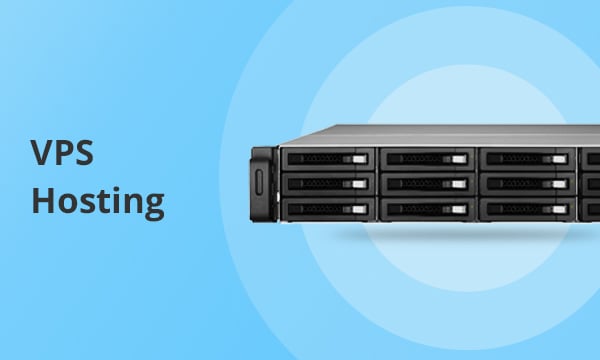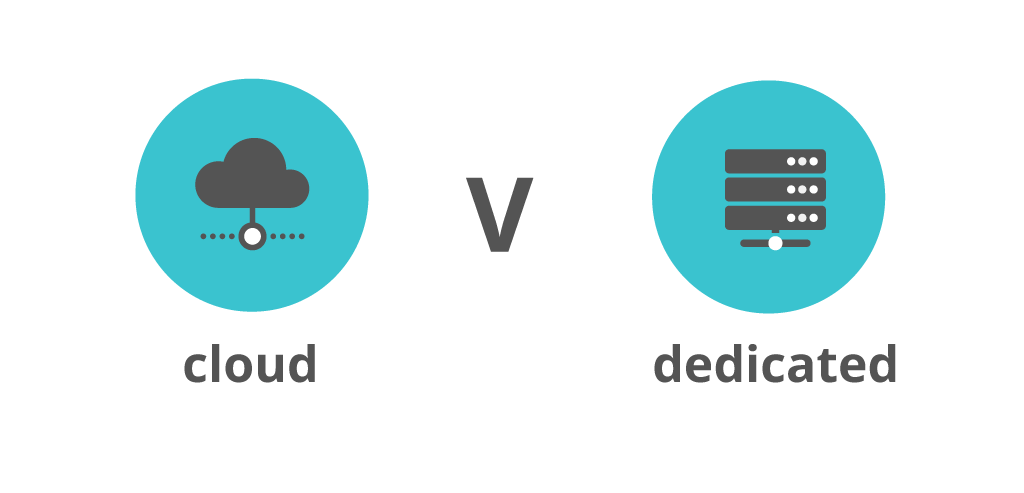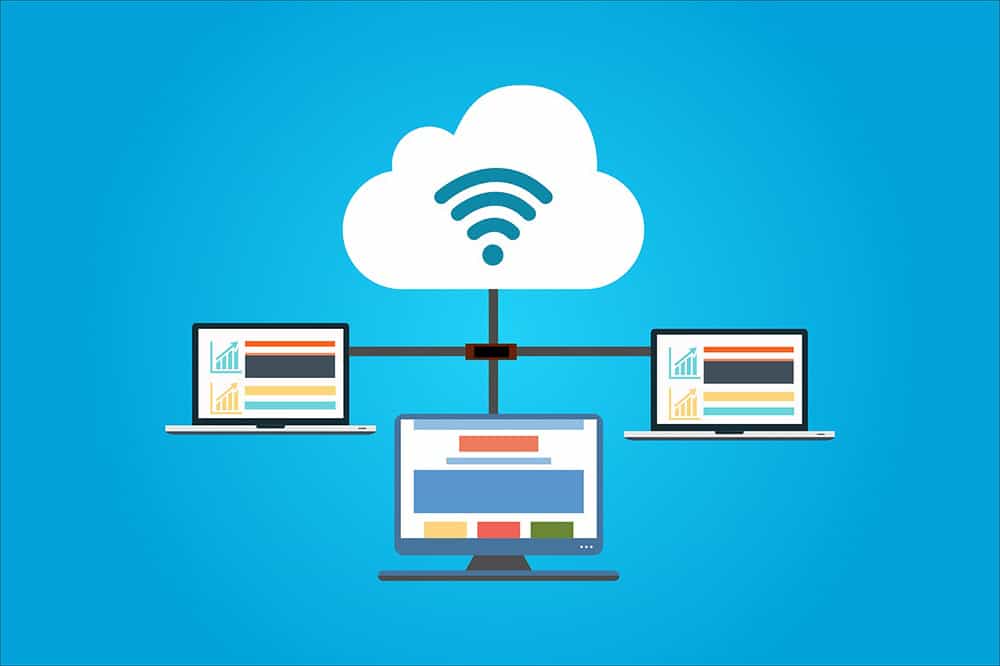Cheap cloud hosting in India has emerged as a transformative force driving significant economic growth and digital empowerment. It has revolutionized how businesses operate, individuals access information, and governments deliver public services. India has quickly embraced cloud hosting as the most populous country in the world, with a burgeoning economy. It has unlocked a plethora of opportunities for enterprises, entrepreneurs, and citizens alike. The impact of cloud hosting is multifaceted, extending beyond mere cost savings. The cloud’s impact on the country’s economic environment is undeniable, from facilitating the expansion of small and medium-sized firms (SMEs) to revolutionizing government services and increasing foreign investment.
Exceptional Perks Offered By Cheap Cloud Hosting in India
Are you looking for a reliable, efficient, cost-effective hosting solution for your business? Cheap cloud hosting in India might be the answer! Cloud hosting has revolutionized how companies manage their online presence in recent years. It offers a wide range of benefits that traditional hosting methods cannot match.
- Cost Savings
Cheap cloud hosting in India enables businesses to reduce infrastructure expenses and embrace a flexible pay-as-you-go pricing concept. This cost-efficient approach transforms the hosting industry and empowers businesses to allocate their resources wisely.
- Reduction in Infrastructure Costs
Cloud hosting eliminates the need for businesses to invest heavily in physical infrastructure, including servers, cooling systems, and data centers. According to a 451 Research study, companies that migrate to the cloud can achieve a 29% reduction in IT infrastructure costs.
- Pay-as-you-go Pricing Model
The flexible and adaptable pay-as-you-go pricing concept of inexpensive cloud hosting in India is intriguing. It implies you pay for the resources you utilize, which saves you money. According to a Gartner analysis, implementing a pay-as-you-go strategy may save organizations up to 70% on operating expenditures.
- Flexibility and Scalability
The power to swiftly adjust to fluctuating workloads and user traffic is one of the crucial criteria for a business’s success. It is where cheap cloud hosting in India steps in as a game-changer. It offers unmatched flexibility and scalability.
- Meeting Fluctuating Demands
Traditional hosting often struggles to cope with sudden spikes in website traffic. Cheap cloud hosting in India, however, offers seamless scalability. It allows resources to be instantly allocated or de-allocated based on demand. It ensures your website can handle high traffic without any downtime. A study by RightScale indicates that 58% of businesses choose cloud hosting for its scalability benefits.
- Easy Resource Upgrades
Cheap cloud hosting in India enables hassle-free resource upgrades. It allows you to easily and quickly expand your server’s capabilities as your business expands. According to a survey conducted by TechValidate, 63% of organizations reported improved application performance after moving to the cloud.
- Enhanced Performance and Reliability
When hosting your business’s critical online assets, performance and reliability are non-negotiable factors. Let’s explore the impressive benefits that cheap cloud hosting in India brings to the table.
- Improved Uptime and Availability
Downtime can be catastrophic for businesses, leading to lost revenue and damage to brand reputation. Cheap cloud hosting in India providers offer robust redundancy and failover mechanisms that ensure high availability. The Cloud Security Alliance (CSA) reports that 99.99% uptime can be achieved with cloud hosting.
- Global Content Delivery Networks (CDNs)
Content Delivery Networks distribute website data across multiple servers worldwide, reducing latency and ensuring faster load times for users across the globe. Cheap cloud hosting in India services often integrates CDNs, enhancing website performance significantly. According to a study by Akamai, a 100-millisecond delay in website load time can lead to a 7% reduction in conversion rates.
Cloud Hosting’s Contribution to the Indian Economy
Cloud hosting has recently emerged as a revolutionary force in the Indian economy, promoting development, innovation, and job creation. Cheap cloud hosting in India has dramatically influenced several sectors due to its capacity to provide scalable, adaptable, and cost-effective solutions. These include small and medium companies (SMEs), the IT industry, and foreign investments. Let’s delve into the ways cloud hosting is making a positive difference in the Indian economic landscape:
- Small and Medium Enterprises (SMEs) Growth
Small and medium enterprises (SMEs) are integral to the Indian economy, creating jobs and contributing to the nation’s GDP. However, SMEs have frequently encountered difficult obstacles, particularly when acquiring and operating pricey IT equipment. As a result, their development and competitiveness suffer. The introduction of cloud hosting has transformed the way SMEs operate. It offers them a transformative solution to overcome traditional barriers and thrive in the digital age.
- Lower Entry Barriers
Cheap cloud hosting in India has broken down traditional barriers for SMEs to establish and expand their digital presence. Rewind to the past few years, IT infrastructure required significant capital expenditure. It makes it challenging for small enterprises to compete. On the other hand, cheap cloud hosting offers a pay-as-you-go strategy. It allows SMEs to access cutting-edge technology at a pocket-friendly expenditure. According to Nasscom research, 50% of Indian SMEs reported lower IT costs after switching to the cloud.
- Increased Innovation and Competition
The availability of cheap cloud hosting in India has sparked a wave of innovation and increased competitiveness among SMEs. Businesses may focus on producing innovative goods and services rather than managing complicated IT infrastructures with access to a wide choice of cloud-based tools and services. The availability of cloud-based analytics and AI services has boosted innovation in a variety of industries. As per a report by Deloitte, 84% of SMEs in India agree that cloud adoption has increased their competitiveness.
- Job Creation in the IT Industry
In the Indian economy, the information technology (IT) industry has emerged as a significant engine of development and job possibilities. With the introduction of cloud hosting technologies, this industry has seen a dramatic revolution. As a result, employment creation increased dramatically. Let’s go further into the beneficial impact of cloud hosting on job creation and how it’s supporting the country’s digital ambitions.
- Cloud Service Providers
The rapid adoption of cloud hosting in India has created a surge in demand for cloud service providers. Companies providing cloud infrastructure, software, and platform services have expanded their operations and employed qualified personnel to address expanding market demand. According to IDC, India’s public cloud services industry is predicted to develop at a CAGR of 22.2% by 2025, creating thousands of new IT jobs.
- Cloud Architecture and Security Experts
The demand for cloud architecture and security expertise has expanded tremendously in response to the rising complexity of cloud-based systems. Cloud architects are responsible for building and executing solid infrastructures, while security professionals assure data security and compliance. According to a Gartner report, by 2023, over 70% of cloud security failures will be linked to insufficient IT professional capabilities. It has opened up new career opportunities for skilled individuals in cloud security.
- Attraction of Foreign Investment
Global investors recognize India’s impressive economic growth and standing as one of the world’s fastest-growing digital marketplaces. The quick embrace of cloud technology services has contributed to India’s flourishing digital economy. It has become a magnet for international investment as it reshapes the country’s commercial landscape.
- Establishing Data Centers in India
The Indian government’s push for digitization and increased demand for cloud services have enticed large tech corporations to invest. Global cloud services companies have established data centers in India to serve the rising industry. The popular names include Amazon Web Services, Microsoft Azure, and Google CloudThis foreign direct investment (FDI) surge has benefited more than just the cloud hosting industry. However, it also contributed to the country’s job creation and infrastructure development.
- Encouraging Foreign Cloud Service Providers
Due to its enormous population and developing digital economy, India is an appealing destination for cloud service providers looking for new business prospects. Research and Markets stated the Indian cloud services industry would be worth $7.1 billion by 2024. The government’s proactive policies to ease business regulations and promote cloud adoption have encouraged foreign cloud service providers to establish their presence in India.
Cloud Hosting’s Impact on Digital Transformation
Cloud hosting’s impact on India’s digital transformation is undeniable. Concrete statistics and facts support its role in empowering startups, enhancing government initiatives, and driving digital inclusion. As more businesses and institutions embrace cloud technologies, India is poised to achieve greater heights in its journey toward a digitally inclusive and thriving nation.
- Empowering Startups and Entrepreneurs
Entrepreneurs and startups fuel innovation, economic growth, and job creation. However, they frequently confront various obstacles. These include limited resources, restricted budgets, and the desire to remain competitive in a technologically driven environment. It is where cheap cloud hosting in India emerges as a game-changer. It has catalyzed the success of startups and entrepreneurs in India. Cheap cloud hosting in India provides them access to cutting-edge technologies and allows them to focus on their core business functions without the burden of managing complex IT infrastructure.
- Access to Cutting-Edge Technologies
Cloud hosting has democratized access to cutting-edge technologies previously reserved for larger enterprises due to prohibitive costs. According to NASSCOM research, approximately 55% of Indian startups and SMEs have utilized cloud computing services. It has allowed organizations to employ advanced techniques such as artificial intelligence (AI), big data analytics, and machine learning. It further fuels innovation and enhances their competitiveness.
- Focus on Core Business Functions
By offloading the burden of managing physical infrastructure and IT operations, cloud hosting allows startups and entrepreneurs to focus on their core business functions. According to a Deloitte survey, 70% of startups in India reported increased productivity and operational efficiency after implementing cloud technology. This shift in emphasis has allowed them to direct their resources into product development, client engagement, and market expansion.
- Government Initiatives and E-Governance
Today, the government’s role in embracing technology and leveraging its potential to serve residents better has become critical. As technology continues transforming the governance environment, cloud hosting has emerged as a game-changer. It raises the bar for government projects and e-governance. By leveraging the power of cloud-based solutions, India has witnessed unprecedented advancements in administrative efficiency, cost optimization, and citizen-centric services.
- Digital India Campaign
The Digital India initiative, launched by the Indian government, aims to transform the nation into a digitally empowered society. Cheap cloud hosting in India plays a pivotal role in this transformation. It provides a scalable and cost-effective platform for various e-governance projects. As per the Ministry of Electronics and Information Technology, adopting cloud-based solutions in government agencies has led to a 30% reduction in IT operational costs, allowing for optimized resource allocation.
- Enhanced Public Service Delivery
Cloud-based e-governance solutions have considerably enhanced the delivery of public services in India. The Aadhaar initiative, which utilizes cloud technology, has enabled over 1.2 billion citizens to access government services easily. Additionally, cloud-based platforms have facilitated the efficient disbursement of subsidies and benefits, reducing leakages and ensuring targeted delivery to beneficiaries.
- Digital Inclusion and Accessibility
Achieving full inclusion and accessibility for all citizens, regardless of geographical location or socio-economic background, is a critical aim in India’s quickly expanding digital ecosystem. The country has significantly advanced in breaking down barriers by leveraging cloud-based technologies. Furthermore, cheap cloud hosting in India spreads the benefits of the digital revolution to every part of the country.
- Reach Rural and Remote Areas
The power of cloud hosting to overcome the digital divide between urban and rural locations is incredible. According to the Internet and Mobile Association of India (IAMAI)’s survey, cloud-based solution has enabled the construction of e-commerce, e-learning, and telemedicine service in rural locations. It has led to a 17% rise in internet penetration in rural India. As a result, it offers communities access to knowledge and economic prospects.
- Education and Healthcare Sectors
By facilitating access to digital materials and services, cheap cloud hosting in India has transformed the education and healthcare sectors. According to KPMG, cloud-based e-learning systems have reached over 70 million students in education. Over 200 million individuals in distant places now have healthcare access because of cloud-based telemedicine services. As a result, it significantly reduces the burden on urban healthcare facilities (NASSCOM).
Wrapping Up
Cheap cloud hosting in India has proven to be a game-changer in the country’s economy. It propels economic growth by accelerating digital transformation, empowering companies and individuals, and accelerating digital transformation. As India continues adopting cloud technology, it is set to solidify its position globally as a technologically inclusive and thriving economy. The potential of cloud hosting to drive innovation, efficiency, and progress is boundless. Its impact on India’s digital journey is unmistakable.

















